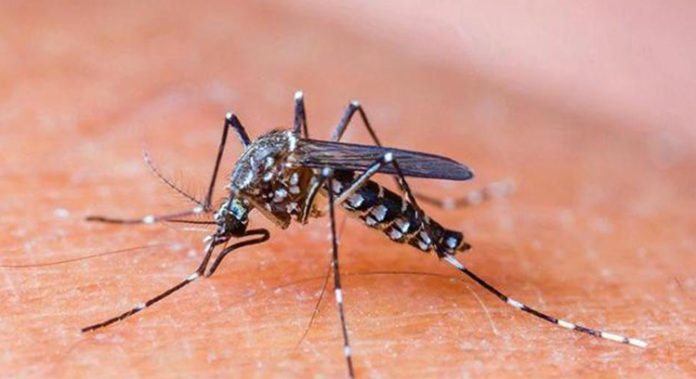Sep 24 - Update On Tiger Mosquito In Gibraltar
 The Gibraltar Health Authority and the Environmental Agency have issued an update on the mosquito of the species Aedes albopictus, also known as the “tiger mosquito”.
The Gibraltar Health Authority and the Environmental Agency have issued an update on the mosquito of the species Aedes albopictus, also known as the “tiger mosquito”.
In August 2017 the first “tiger mosquito” had been detected in Gibraltar after almost a year of surveillance. The mosquito had previously been detected in Malaga and Algeciras in 2015.
A spokesperson said: "Since that date, more reports have appeared of the mosquito being spotted by the public and by researchers. The mosquito has a typical appearance with black and white stripes on the body and legs (which gives it the popular name “tiger”).
"The tiger mosquito is not native to Gibraltar and has not been previously found here. Unusually, it is a day-time mosquito and it aggressively bites humans. It is a domestic species, breeds in water in urban areas (water butts, blocked drains, rainwater gulleys, etc.) and is able to reach high abundance around residential areas.
"The tiger mosquito is now firmly established in Gibraltar and it looks like it is here to stay. Because it bites during the day, you are likely to be bitten at work or at school or at home if you are there during the day. Bites may be more prevalent as it happens when people are up and about. You may have therefore have noticed mosquito bites more than in the past.
"Care should be taken to empty or dry up areas of standing water. Because these may be inaccessible on roofs, etc., this will not always be successful, and mosquito repellents are an option.
"At present, the discovery of this mosquito does not pose any health risks in Gibraltar and there is no immediate cause for public concern. The bites may be a nuisance, but there are no diseases in Gibraltar that this mosquito can spread.
"In other countries, particularly the Far East and South America, where viral diseases like Zika, Dengue and Chikungunya exist, these can be spread by the tiger mosquito. This is not the case in Gibraltar. These viruses can however be imported by travellers returning from an overseas country and if this happens, there is a possible risk of spread, but even this can occur only if the mosquito bites the returning traveller within about a week after the fever starts, hence the risk is very small."
The GHA recommends the following precautions for travellers:
- Before travelling to affected areas, consult your doctor or seek advice from a travel clinic, especially if you have an immune disorder or severe chronic illness.
- If you are pregnant or are considering pregnancy, consider postponing non-essential travel.
- When staying in a mosquito-prone area, wear mosquito repellents and take mosquito bite prevention measures.
- If you have symptoms within three weeks of return from an affected country, consult your doctor.
- If you have been diagnosed with any of the diseases Zika, Dengue or Chikungunya, take strict mosquito bite prevention measures for 10 days after the fever starts. The above advice is also contained in the GHA leaflet “A Factsheet for Travellers”.

{fcomment}






